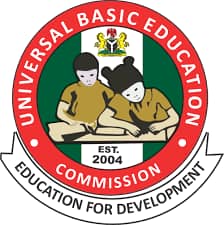By Abubakar Yusuf
The Universal Basic Education Commission (UBEC) has initiated a national dialogue addressing the persistent crisis of Out of School Children (OOSC) in Nigeria, urging the involvement of stakeholders from both public and private sectors.
In response to the alarming situation of over 20 million OOSC in Nigeria—predominantly in the northern regions—the National Assembly has convened a national discourse to explore solutions to this pressing issue.
This initiative follows widespread concern among various stakeholders regarding the deteriorating conditions faced by OOSC and the urgent need for effective measures to reverse this trend.
With the National Assembly representing a significant portion of the Nigerian populace, it is poised to seek actionable strategies to combat the ongoing challenges posed by OOSC in the country.
The call for action coincides with comments from former leaders, including former President Olusegun Obasanjo, who recently highlighted the connection between the OOSC crisis and escalating security issues, such as kidnappings and banditry, during a celebration for General Yakubu Gowon.
Obasanjo emphasized that without addressing the OOSC problem, these security challenges will remain unresolved despite substantial government investments.
Similarly, the Northern Governors Forum, led by Kwara State Governor Abdulfatah Abdulrasaq, has expressed concerns over the correlation between the OOSC crisis, insecurity, and widespread poverty, particularly in northern Nigeria.
Governors from the South-South region have echoed these sentiments, recognizing that the OOSC issue is a global challenge rooted in local problems that demands immediate and coordinated action.
Stakeholders, social advocates, and civil society organizations have launched various initiatives to encourage government and private sector efforts to tackle the OOSC dilemma.
UBEC’s appeal for increased support to combat the OOSC crisis aligns with the Sustainable Development Goals (SDGs), specifically Goal 4, which aims for quality education for all Nigerians by 2030.
The commission has taken significant steps to accurately quantify the number of OOSC across Nigeria’s 36 states and the Federal Capital Territory (FCT) through a dedicated committee.
With comprehensive reports in hand, UBEC has initiated awareness campaigns and programs aimed at addressing the OOSC crisis over the past two years.
Under the leadership of Dr. Hamid Bobboyi, UBEC has pursued various policies and programs to mitigate the incidence of OOSC, recognizing that basic education serves as the foundation for further learning.
The establishment of the Secondary Schools Education Commission (SSEC) further complements UBEC’s efforts, fostering a collaborative approach to resolving the OOSC challenge.
Through extensive fieldwork and data collection, collaboration among stakeholders and UBEC is essential to devising effective solutions for the OOSC crisis in Nigeria, paving the way for comprehensive development.
**Written by Abubakar Yusuf | yus.abubakar3@gmail.com**











